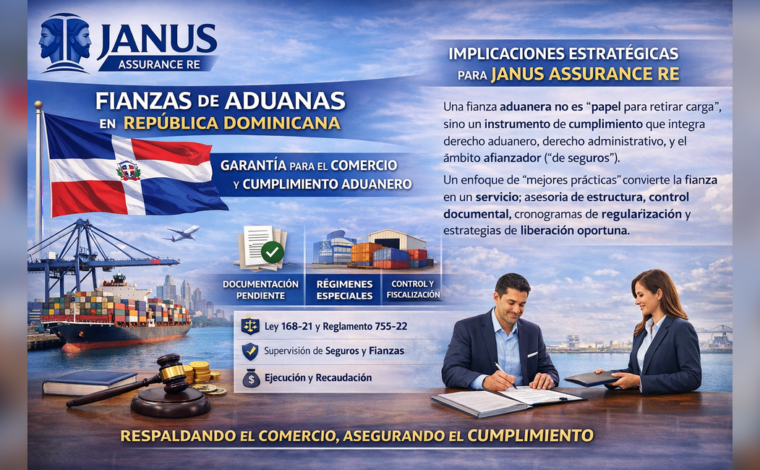Reinsurers contracting in the surety class must give special attention to arbitration clauses incorporated in treaty documents. In National American Insurance Co. v. SCOR Reinsurance Co., the U.S. Court of Appeals for the Tenth Circuit issued an opinion with broad implications for reinsurers participating in the surety class. For Re partners, the case outcome speaks to how arbitration clauses are interpreted and applied to interconnected contractual agreements. The case concerned a dispute between National American Insurance Company (NAICO) and SCOR Reinsurance Company (SCOR), the surety’s reinsurer. NAICO and SCOR entered into a reinsurance treaty in April of 1999, which provided that SCOR would reinsure a portion of NAICO’s surety bond portfolio. That treaty included a broad arbitration clause mandating arbitration of “any irreconcilable dispute” between the parties.
In addition to the treaty, the parties executed a separate document labeled the “Hold Harmless and Indemnity Agreement”. Under said agreement, SCOR agreed to act as co-surety on two bonds (Geismar and Chalmette bonds) on behalf of NAICO. This arrangement was allegedly undertaken solely to facilitate NAICO’s bond issuance under the reinsurance treaty. NAICO promised to indemnify SCOR for any losses it sustained as co-surety. Although the co-surety agreement did not include an arbitration clause, it explicitly referenced the reinsurance treaty. By endorsement, in December 2000, the parties agreed to terminate SCOR’s co-surety obligations as of April 1st, 2000.
The dispute arose when claims were made on the Geismar and Chalmette bonds. NAICO paid those claims and sought indemnity from SCOR based on the hold harmless agreement. Rather than demand arbitration, NAICO filed suit in federal court avering that SCOR was liable as a co-surety independent of any re obligation. SCOR responded with a motion to compel arbitration, arguing that the dispute fell within the scope of the treaty’s arbitration provision. The district court denied the motion, finding that the dispute concerned a separate co-surety relationship governed solely by the indemnity agreement which contained no arbitration clause.
On appeal, the Tenth Circuit reversed the district court’s ruling. The appellate court held that the dispute was arbitrable under the treaty’s broad arbitration clause. The court reiterated a fundamental principle of federal arbitration jurisprudence, i.e., in those cases where a contract contains an arbitration clause courts must resolve doubts concerning the scope of arbitrable issues in favor of arbitration. The panel emphasized that the clause in question covering “any irreconcilable dispute between the parties”, was expansive. The court found that the underlying dispute, even if based in part on a separate agreement, related closely to the performance and terms of the reinsurance treaty.
The court rejected NAICO’s argument that the procedural clause attached to the arbitration provision limited its scope to disputes “under this agreement.” Per the decision, that clause merely addressed the mechanics of arbitration, not its scope. The Tenth Circuit instead focused on the context and content of the arbitration clause itself, substantively broad and without arbitration limitiations to disputes arising solely under the treaty. In interpreting the agreements, the court examined the interconnected nature of the co-surety arrangement and the extant reinsurance treaty. The hold harmless agreement explicitly referred to the treaty and described SCOR’s role as a co-surety as being “solely to facilitate” NAICO’s surety program, which was itself reinsured under the treaty. Further, correspondence in November 1999, a letter from SCOR to NAICO stated that SCOR’s co-surety role should be construed as reinsurance and therefore subject to the treaty’s terms. These facts were persuasive. The court found that the two agreements were part of a unified contractual arrangement, or at the very least, that the dispute between the parties was “related to” the reinsurance agreement.
The Tenth Circuit also relied on precedent to support its conclusion. Citing ARW Exploration Corp. v. Aguirre, 45 F.3d 1455 (10th Cir. 1995), the court reaffirmed that where multiple contracts are part of a single transaction and one contains a valid arbitration clause, disputes arising under related agreements may be subject to arbitration as well. The absence of an arbitration clause in one document does not preclude arbitration if the agreements are sufficiently interconnected and the dispute touches matters covered by the arbitration agreement.
This decision carries substantial import for reinsurers. It confirms that broadly worded arbitration clauses, particularly those referring to “any dispute” or “irreconcilable disagreement”, will be construed expansively to encompass related contractual arrangements even when those arrangements are not formally within the ‘four corners’ of the treaty. Reinsurers that engage in ancillary or facilitative roles, such as assuming co-surety positions, should be aware that courts may view those roles as extensions of the reinsurance relationship and thereby subject to the treaty’s arbitration provision.
The ruling underscores the importance of contract drafting. If parties intend for a co-surety or indemnity agreement to be governed independently of the reinsurance treaty, they must explicitly manuscript this into the treaty document. Conversely, if the intent is for such agreements to fall within the arbitration framework of the treaty, that intent should be clearly expressed in both documents. Reinforcing the relationship between documents through cross-references and integration clauses strengthens the Re’s position in any dispute.
The case also illustrates the evidentiary value of correspondence and contemporaneous writings. SCOR’s 1999 letter declaring that the co-surety role was effectively a form of reinsurance carried significant evidentiary weight in persuading the court to view the dispute as arbitrable. This highlights the importance of memorializing the parties’ understanding of the scope and purpose of their agreements in writing. Letters of intent, internal memoranda, and even email correspondence can become dispositive in litigation over arbitrability.
The decision is a reminder that procedural clauses or limitations embedded in arbitration provisions will not be read to restrict the scope of arbitration unless they are unmistakably clear. The court dismissed NAICO’s reliance on procedural language to limit the reach of the arbitration clause, a result that reaffirms the robust nature of arbitration agreements under federal law. For reinsurers, this suggests that a well-drafted arbitration clause can provide broad procedural protection across a wide array of related agreements and dispute types.
National American v. SCOR sends a clear message to surety reinsurers and their counsel: structure transactions and dispute resolution provisions with the presumption that courts favor arbitration. Reinsurers should treat each contractual component—treaties, endorsements, indemnity agreements, and surety participations—as potentially subject to the arbitration clause if the underlying relationships are intertwined. Whether drafting new treaty language or evaluating exposure under legacy agreements, reinsurers should perform a comprehensive review to ensure consistency in dispute resolution terms and to anticipate litigation risks stemming from ambiguous or fragmented documentation.
The Tenth Circuit’s decision in National American Insurance Co. v. SCOR Reinsurance Co. reinforces the legal and commercial strength of broad arbitration clauses in reinsurance treaties. For reinsurers that offer surety class re operatie in complex multi-contract environments. This case affirms that judicial interpretation will favor arbitration when agreements are substantively interrelated, even if not ‘formally’ unified. North American v. SCOR Re should be viewed as both a warning as well as a strategic guidepost for reinsurers seeking to enforce or resist arbitration based on how their agreements are constructed and interconnected.
~ C. Constantin Poindexter, MA, CPCU, JD, ASLI, AFSB, ARe
- Case References
- Moses H. Cone Mem’l Hosp. v. Mercury Constr. Corp., 460 U.S. 1, 24–25 (1983).
- Nat’l Am. Ins. Co. v. SCOR Reinsurance Co., 362 F.3d 1288 (10th Cir. 2004).
- Id. at 1292.
- Id. at 1291.
- ARW Expl. Corp. v. Aguirre, 45 F.3d 1455, 1462 (10th Cir. 1995).












































